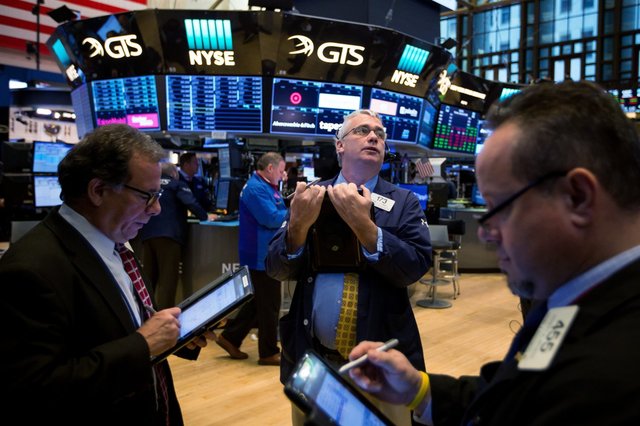U.S. Stocks Set to Open Lower

Global stock markets dipped Tuesday following declines in the U.S., as markets turned cautious after an impressive start to the year.
U.S. equity futures fell sharply, with S&P 500 and Dow Jones Industrial Average futures down 0.6% and 0.8%, respectively, ahead of the open in New York.
The Stoxx Europe 600 index fell 0.6% around midday in Europe, following declines almost across the board in Asian equities.
Wells Fargo Investment Institute analysts suggested investors avoid overexposure to similar U.S. sectors in a research note this week.
“Price movements in these sectors are greatly influenced by changes in 10- year Treasury yields,” the analysts wrote. “They often act more like bonds than stocks.”
Eurozone GDP data released Tuesday showed an expansion of 2.6% in the final quarter of 2017, compared with the same quarter in 2016.
The rise matches the pace of expansion in the third quarter of 2017, marking the joint-fastest growth rates since 2007.
Oil futures fell about 1.1%, extending similar declines seen Monday, while U.S. gold futures were recently up around 0.1%.
U.S. President Donald Trump will deliver his first State of the Union address later Tuesday.
At the same time, 10-year U.S. Treasury yields touching as high at 2.73% in Asian trading hours, their highest in nearly four years. Yields on 10-year Treasurys were recently at 2.699%.
The dollar reversed earlier gains, with the WSJ Dollar Index 0.3% lower in just ahead of the U.S. market open. The greenback declined 0.3% against the yen to ¥108.7.
Japan’s Nikkei 225 index closed down by 1.4%, marking its first five-day losing streak since November. China’s Shenzhen A-Share index dropped 0.5%, while Hong Kong’s Hang Seng fell 1.1%.
The impact of a sharp increase in bond yields on equity markets is becoming a point of discussion among investors and analysts.
“The ability of the equity market to absorb higher bond yields is critical,” said Goldman Sachs equity analysts in a research note Monday. “So far, it has been able to do so as growth expectations have continued to rise. But there are risks that the bond markets adjust too rapidly from current levels.”
Low global interest rates and bond yields have supported higher equity market valuations around the world, as poor returns on debt securities increases the attractiveness of equities.
Those steeper valuations mean global markets could be primed to reverse course, said Robert Gillam, chief executive of McKinley Capital, an Alaska-based investment management firm that oversees $6.4 billion in assets.
“Am I worried for the immediate term? Sure,” he said. “The world is definitely due for a pullback.”
In Europe, banks and basic resources shares were among those down most sharply, falling by 1% and 1.3% respectively.
But so far in 2018 banks have generally outperformed, an example of a cyclical sector that generally benefits from higher interest rates. Even after Tuesday’s fall, the Stoxx 600 Banks sector is up by nearly 6% this year.
In comparison, so-called defensive sectors like telecommunications stocks tend to suffer as rates rise. The Stoxx 600 Telecommunications sector is down for the year to date.